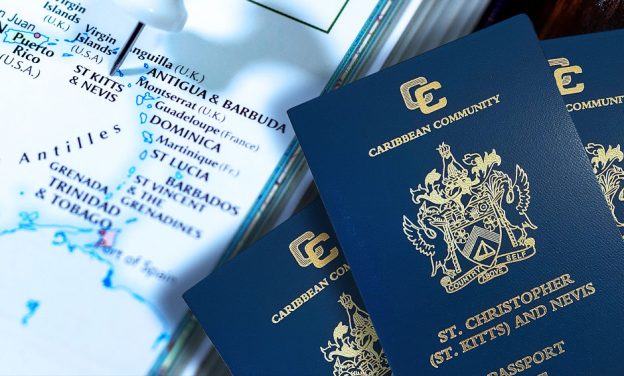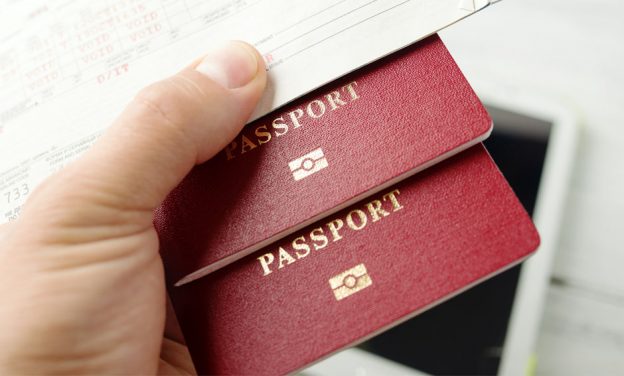A Historic Step for Citizenship By Investment in the Caribbean
The world of Citizenship By Investment (CBI) has just undergone a major transformation. On September 23, 2025, in Castries, Saint Lucia, the Heads of Government of the Organisation of Eastern Caribbean States (OECS) announced the signing of a groundbreaking agreement. This agreement establishes a regional regulatory authority that will set consistent standards for all CBI programmes across the participating Member States.
The move signals a strong commitment to integrity, transparency, and sustainability. It also ensures that CBI continues to provide a lifeline for small island economies while standing up to international scrutiny.
For investors, this means the future of second citizenship in the Caribbean looks both stable and secure.
Why These Changes Matter
CBI has long been a tool for global entrepreneurs, investors, and families looking to diversify their options. However, critics have questioned its legitimacy, especially in light of global security concerns. By introducing region-wide oversight and accountability, the OECS governments are sending a clear message: CBI is here to stay, and it will operate at the highest international standards.
These reforms don’t just preserve the credibility of Caribbean citizenship by investment programmes—they also strengthen their global appeal. Investors want assurance that their new citizenship carries weight and respect worldwide. With these changes, that assurance just became stronger.
The Establishment of ECCIRA: A Regional Regulatory Authority
One of the most significant elements of the reforms is the creation of the Eastern Caribbean Citizenship by Investment Regulatory Authority (ECCIRA). This body, set to launch by October 2025, will provide uniform oversight across all participating OECS states:
By standardizing rules and enforcement, ECCIRA eliminates the inconsistencies that once made investors hesitant. Now, whether you apply in St. Kitts or Grenada, the requirements and protections will align. For investors, this provides clarity, predictability, and peace of mind.
Enhanced Security and Due Diligence
Security has always been at the heart of Citizenship By Investment, but these reforms push standards even higher. New measures include:
- Biometric data collection: All new applicants must provide biometrics during their interview. For previously approved applicants, biometrics will be collected during passport renewal.
- Stronger residency and genuine link requirements: Investors must now demonstrate a closer connection to their new country.
- Expanded regional vetting: Through CARICOM IMPACS’ Joint Regional Communications Centre, backed by additional funding from CBI revenues, due diligence will become more thorough than ever.
For global investors, this creates a stronger sense of legitimacy. When critics can no longer question the depth of vetting, the value of the passport you hold only rises.
Transparency and Accountability Measures
The OECS reforms also target transparency, a key demand from international partners like the European Commission, United States, and United Kingdom.
The new measures include:
- Binding standards for all national CBI Units and licensed agents.
- Annual public reports detailing compliance and enforcement actions.
- Regional registers of applicants, licensees, and developers to prevent abuse.
Transparency reassures both governments and investors. When everyone can see that programmes operate with accountability, the stigma around CBI starts to fade.
Compliance and Enforcement
For the first time, governments are holding not just applicants, but also their own institutions accountable.
- Administrative fines and penalties will apply to CBI Units and licensed agents that fall short.
- Revocation powers ensure that non-compliance or failure to deliver on contractual obligations has real consequences.
This level of enforcement sends a strong signal: the days of loosely monitored citizenship programmes are over.
Economic Sustainability Through Minimum Investment
Another critical reform is the region-wide minimum investment threshold of US$200,000. This aligns with the OECS Memorandum of Agreement from 2024 and ensures no “race to the bottom” occurs among Member States.
By setting a baseline, the OECS protects programme credibility while ensuring revenues continue to fund:
- Climate resilience projects
- Critical infrastructure
- Social development initiatives
For investors, the higher threshold solidifies the value of Caribbean citizenship. You aren’t just buying a passport—you’re contributing to the long-term stability of these nations.
International Engagement: Building Global Trust
These reforms didn’t appear overnight. They are the result of years of negotiation and dialogue:
- US-Caribbean Roundtables in 2023 and 2024
- European Commission sessions in Dominica (January 2024)
- UK, US, and EC consultations in Grenada (August 2024) and London (January 2025)
- Regional consultations with Attorneys General, financial secretaries, industry professionals, and civil society in 2025
International partners now acknowledge that dismantling CBI programmes would devastate small island economies. Instead of pushing for elimination, they’ve supported reforms that guarantee integrity.
This level of cooperation ensures the long-term survival of CBI as a legitimate tool for both investors and nations.
What This Means for Investors
For global entrepreneurs, high-net-worth individuals, and internationally minded families, the reforms bring several key benefits:
- Stability – With a regional regulator, programmes gain legitimacy that will last.
- Security – Enhanced vetting means your citizenship will carry more global respect.
- Predictability – Standardized thresholds and requirements create clarity for investors.
- Opportunity – OECS nations will continue to rely on CBI revenues, meaning programmes will remain open and active for the foreseeable future.
For those seeking global diversification, a Caribbean passport remains one of the most efficient strategies. These reforms only make that option stronger.
Why the OECS Reforms Are a Blueprint for the Future
The OECS reforms show how small states can collaborate to protect both their economies and their reputations. By standing together, they’ve created a system that balances investor demand with global security requirements.
Other regions with citizenship or residency programmes may eventually follow this example. Standardization, transparency, and accountability will become the global norm, not the exception.
Apex Capital Partners’ Perspective
For over 30 years, Apex Capital Partners has guided investors through the complexities of Citizenship By Investment. Having worked directly with governments and policymakers, Apex has emphasized preparation, compliance, and long-term vision.
From Grenada to St. Kitts and beyond, Apex understands that credibility matters as much as efficiency. These OECS reforms reflect the very principles that Apex has championed for decades: thorough due diligence, sustainable investment thresholds, and the preservation of CBI as a legitimate economic tool.
For investors, partnering with seasoned advisors ensures that your path to second citizenship remains seamless while fully aligned with the latest regulations.
Looking Ahead: Citizenship By Investment in a Changing World
Global mobility continues to evolve. Geopolitical uncertainty, economic volatility, and climate risks make second citizenship more valuable than ever. For entrepreneurs, a Caribbean passport provides:
- Visa-free access to key markets
- Tax optimization opportunities
- A secure backup plan for families
- A gateway to global freedom
With the OECS now setting a gold standard for Citizenship By Investment, the Caribbean remains a prime destination for investors who want both opportunity and security.
The Future of CBI in the Caribbean
The September 2025 announcement marks a turning point in the history of Citizenship By Investment. By establishing ECCIRA, enhancing due diligence, raising thresholds, and committing to transparency, the OECS has secured the future of its programmes.
For investors, this translates to long-term confidence. You’re not just acquiring a passport—you’re investing in resilient economies, sustainable development, and global legitimacy.
In an era where diversification is no longer optional, Caribbean citizenship stands out as one of the smartest moves you can make. And with these reforms in place, that decision carries more weight, credibility, and opportunity than ever before.






